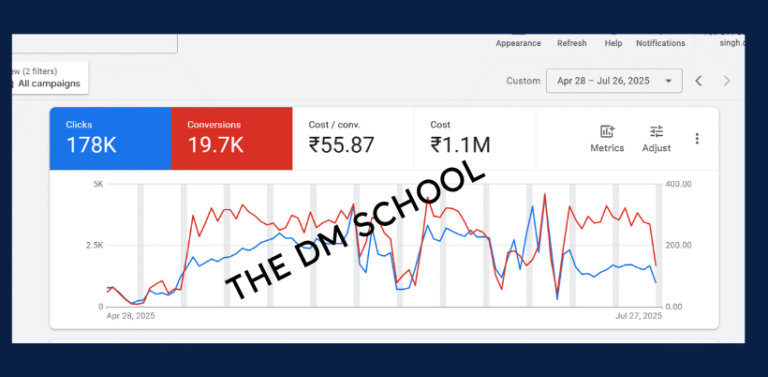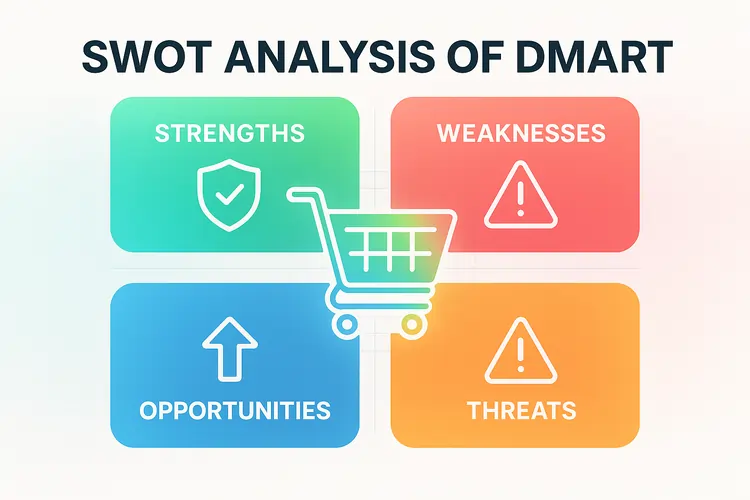In the ever-evolving world of digital marketing, one question persists: Is SEO dead? As we enter 2024, this question is more relevant than ever.
The truth is, SEO is far from dead, but the landscape is rapidly changing. In this blog post, we’ll explore the state of SEO in 2024, the impact of AI on SEO, the top factors Google considers for ranking, and why user experience is crucial.
Is SEO Dead?
SEO, or Search Engine Optimization, has been a cornerstone of digital marketing for years. However, with the rise of AI, voice search, and other technological advancements, some argue that SEO’s relevance is dwindling.
The reality is that SEO is not dead; it’s evolving. The fundamentals of optimizing for search engines remain, but the strategies and tactics are changing to keep up with new trends and technologies.
In recent years, we’ve witnessed significant shifts in how search engines operate. Algorithms are becoming more sophisticated, focusing on delivering the best user experience possible.

This means that traditional SEO tactics, such as keyword stuffing and buying backlinks, are no longer effective. Instead, a holistic approach that considers user intent, content quality, and technical SEO is essential for success.
Moreover, the rapid growth of mobile internet usage has transformed SEO practices. With more people accessing the internet via smartphones and tablets, optimizing for mobile search has become crucial.
Google’s mobile-first indexing means that the mobile version of your website is now the primary factor in determining your search rankings. Therefore, ensuring your site is responsive and mobile-friendly is no longer optional but a necessity.
Impact on SEO in 2024
In 2024, several factors are influencing the direction of SEO:
- AI and Machine Learning: AI technologies like Google’s BERT and GPT-4 are improving the search engine’s ability to understand natural language, making content relevance more critical than ever.

These advancements mean that search engines can now comprehend the context and nuances of search queries, delivering more accurate results.
As a result, SEO strategies must focus on creating content that answers user queries comprehensively and contextually.
- Voice Search: With more people using voice-activated devices, optimizing for conversational queries is essential. Voice search is changing the way people search for information online.
Unlike traditional text-based searches, voice searches are often longer and more conversational

This shift requires SEO professionals to optimize for long-tail keywords and natural language queries.
Additionally, providing concise and direct answers to common questions can help secure a spot in voice search results.
- Mobile-First Indexing: Google prioritizes mobile-friendly websites, so ensuring your site is responsive is crucial.
As mobile internet usage continues to rise, Google’s emphasis on mobile-first indexing means that websites must provide a seamless mobile experience.
This includes fast loading times, intuitive navigation, and mobile-friendly content.
Businesses that fail to prioritize mobile optimization risk losing visibility and traffic in search results.
- Core Web Vitals: User experience metrics such as loading speed, interactivity, and visual stability are now key ranking factors.
Core Web Vitals are a set of performance metrics introduced by Google to measure the user experience of a website.

These metrics include Largest Contentful Paint (LCP), First Input Delay (FID), and Cumulative Layout Shift (CLS). Websites that perform well in these areas are likely to see improved rankings.
Therefore, optimizing for Core Web Vitals is essential for maintaining a competitive edge in SEO.
- Content Quality: High-quality, relevant content that answers users’ queries will always be valuable.
Content remains king in the world of SEO. However, the definition of high-quality content has evolved. It’s no longer enough to produce keyword-rich articles. Instead, content must be informative, engaging, and tailored to meet the needs of your target audience.

This means conducting thorough keyword research, understanding user intent, and creating content that provides value and solves problems.
In addition to these factors, other trends are shaping the future of SEO:
- Video SEO: The popularity of video content is soaring, making video SEO a critical component of digital marketing strategies.
Optimizing video content for search engines involves using descriptive titles, tags, and transcripts.
Additionally, hosting videos on platforms like YouTube, which is the second-largest search engine, can significantly enhance your online visibility.
- Local SEO: With the increasing use of mobile devices, local SEO has become more important than ever.
Optimizing for local search involves claiming and optimizing your Google My Business listing, gathering positive reviews, and ensuring your business information is consistent across online directories.

Local SEO helps businesses attract nearby customers and drive foot traffic to physical locations.
- E-A-T (Expertise, Authoritativeness, Trustworthiness): Google’s emphasis on E-A-T has made it crucial for websites to establish credibility and authority.
This involves showcasing the expertise of your content creators, building a strong backlink profile, and ensuring your website is secure and trustworthy.
E-A-T is particularly important for websites in the YMYL (Your Money, Your Life) niches, such as finance, health, and legal.
- Structured Data and Schema Markup: Implementing structured data and schema markup can enhance your website’s visibility in search results.
These techniques help search engines understand the content of your pages better and can lead to rich snippets, which are more attractive and informative search results.
Rich snippets can improve click-through rates and drive more organic traffic to your site.
- User Intent and Behavioral Analytics: Understanding user intent and analyzing user behavior are crucial for effective SEO.
By using tools like Google Analytics and heatmaps, you can gain insights into how users interact with your website.
This information can help you optimize your content, design, and navigation to better meet user needs and improve your search rankings.
Impact of AI on SEO
AI is revolutionizing SEO in several ways:
- Content Creation: AI tools can generate content, but human oversight is necessary to ensure quality and relevance. While AI-generated content can help with scalability, it’s essential to maintain a human touch to ensure the content aligns with your brand voice and provides real value to your audience.
Additionally, AI tools can assist in identifying content gaps, optimizing headlines, and generating topic ideas.
- Search Algorithms: AI helps search engines better understand context and intent, making it vital for marketers to focus on user intent.
With AI-powered algorithms, search engines can analyze vast amounts of data and deliver highly relevant results.

This means that understanding and addressing user intent is more important than ever.
Marketers must create content that anticipates and answers the questions users are likely to ask.
- Personalization: AI enables more personalized search results, meaning SEO strategies need to be tailored to target audiences.
Personalization involves delivering content that is relevant to the individual user based on their preferences, search history, and behavior.
By leveraging AI, businesses can create personalized experiences that drive engagement and conversions.
This includes using recommendation engines, personalized email campaigns, and dynamic content on websites.
- Predictive Analysis: AI can predict trends and user behavior, allowing marketers to stay ahead of the curve.
Predictive analysis involves using historical data and machine learning algorithms to forecast future trends and user actions. This can help businesses make informed decisions, optimize their marketing strategies, and improve ROI.
For example, predictive analysis can identify emerging keywords, forecast seasonal trends, and anticipate shifts in user behavior.
Top 10 Factors Google Considers for Ranking
- Content Quality: Informative, engaging, and relevant content is essential. Google’s primary goal is to deliver the best possible content to users.
High-quality content that addresses user queries comprehensively and provides valuable insights will always rank higher.
This involves conducting thorough research, using credible sources, and ensuring your content is well-structured and easy to read.
- User Experience: Sites with excellent user experience, fast loading times, and mobile-friendliness rank higher.
User experience is a critical factor in search rankings. A positive user experience involves intuitive navigation, fast page loading times, and a seamless mobile experience.
Ensuring your website is user-friendly can reduce bounce rates, increase dwell time, and improve overall engagement.
- Backlinks: Quality backlinks from reputable sources signal authority. Backlinks are one of the most important ranking factors in SEO.
Google views backlinks as votes of confidence from other websites. However, not all backlinks are created equal.
Quality backlinks from authoritative and relevant sites carry more weight than numerous low-quality links.
Building a strong backlink profile involves creating valuable content that others want to link to and engaging in outreach and relationship-building.
- Page Structure: Proper use of headers, metadata, and keywords improves ranking. On-page SEO involves optimizing various elements of your web pages, including headers (H1, H2, H3), meta descriptions, title tags, and URL structures.
Using keywords strategically in these elements can help search engines understand the content and relevance of your pages.
Additionally, organizing your content with clear headings and subheadings makes it easier for users and search engines to navigate.
- Engagement Metrics: High click-through rates, low bounce rates, and longer dwell times indicate user satisfaction.
Engagement metrics are signals to Google that your content is valuable and relevant to users. A high click-through rate (CTR) suggests that your meta descriptions and title tags are compelling.
Low bounce rates and longer dwell times indicate that users find your content engaging and worth spending time on. Improving these metrics involves creating compelling meta tags, optimizing content for readability, and providing a seamless user experience.
- Mobile Optimization: Google prioritizes websites that are optimized for mobile devices. With the majority of internet users accessing websites via mobile devices, mobile optimization is crucial.
This involves using responsive design, optimizing images and videos for mobile, and ensuring that all elements of your site are easily accessible
Why SEO Is Becoming More Important for Businesses in 2024
As we move further into 2024, the importance of SEO for businesses is becoming increasingly evident. Here are some key reasons why SEO is more crucial than ever:
- Increased Online Competition: With more businesses recognizing the potential of digital marketing, the online marketplace has become highly competitive.
Effective SEO strategies can help businesses stand out in crowded digital spaces, attract more organic traffic, and gain a competitive edge.
- Changing Consumer Behavior: Consumers are increasingly turning to search engines for information, product research, and purchasing decisions.
Being visible in search results is vital for capturing this intent-driven traffic. SEO helps ensure that your business appears at the right moment when potential customers are looking for your products or services.
- Local Search Optimization: The rise of mobile device usage has led to a surge in local searches, with consumers looking for nearby businesses and services.
Local SEO is essential for businesses that want to attract local customers. By optimizing for local search, businesses can drive foot traffic and increase conversions from local consumers.
- Voice Search: The growing popularity of voice-activated devices means more people are using voice search to find information.
Optimizing for voice search requires a focus on conversational keywords and natural language queries, making SEO an indispensable tool for capturing this segment of search traffic.
- User Experience and Core Web Vitals: Google’s emphasis on user experience through Core Web Vitals metrics highlights the need for fast, responsive, and stable websites.
SEO strategies that focus on improving these aspects not only enhance search rankings but also provide a better user experience, leading to higher engagement and conversion rates.
- Content Quality and Relevance: High-quality, relevant content remains a cornerstone of effective SEO. As search engines become better at understanding user intent, businesses need to create content that addresses specific queries and provides valuable insights. This not only improves search rankings but also builds trust and authority with your audience.
- Algorithm Updates and AI Integration: Search engines are continuously evolving, with frequent algorithm updates and increased integration of AI technologies.
Staying updated with these changes and adapting SEO strategies accordingly is crucial for maintaining and improving search rankings.
Businesses that ignore SEO risk falling behind as search algorithms become more sophisticated.
- Long-Term Investment: Unlike paid advertising, which stops delivering results once the budget is exhausted, SEO provides long-term benefits.
Investing in SEO builds a strong foundation for sustained organic traffic and visibility. Over time, this can lead to a significant return on investment, making SEO a cost-effective marketing strategy.
- Data-Driven Decision Making: SEO provides valuable insights into consumer behavior, preferences, and trends.
By analyzing data from SEO efforts, businesses can make informed decisions, refine their marketing strategies, and better understand their target audience. This data-driven approach enhances overall marketing effectiveness.
- Integration with Other Marketing Channels: SEO complements and enhances other digital marketing efforts, such as content marketing, social media, and paid advertising.
An integrated approach ensures consistency across all channels, amplifying the impact of your marketing campaigns and maximizing reach and engagement.
SEO is not just a marketing tactic but a vital component of a comprehensive digital strategy. As businesses navigate the complexities of the digital landscape in 2024, investing in SEO will be crucial for achieving online visibility, attracting high-quality traffic, and driving business growth.
Finding the Best SEO Service for Your Business
Alright, so you’re on the hunt for the best SEO service for your business—let me help you out with that. First things first, you want to find an agency that’s been around the block a few times, especially in your industry.
It’s like finding a good friend who knows your world inside and out—they’ll just “get” what your business needs.
Now, transparency is huge. You don’t want to be left in the dark, right? So, look for a digital marketing agency that keeps things clear and straightforward, with regular updates on what’s happening and how things are going. It’s all about trust, after all.
Another thing to watch out for is those cookie-cutter solutions. Your business is unique, so why should your SEO strategy be any different? Go for an agency that takes the time to understand your goals and tailors their approach just for you.
And if you’re based in Delhi, finding a digital marketing agency in Delhi that knows the local scene can really give you an edge. They’ll have the inside scoop on what works best around here.
In the end, just think of it like choosing a partner who’s in it with you for the long haul—someone who’s got your back and helps you grow.
FAQ'S Related to SEO
Absolutely! SEO is evolving but remains crucial for online visibility and traffic.
AI improves search engines’ understanding of context and user intent, making high-quality, relevant content more important.
Content quality, user experience, backlinks, page structure, and engagement metrics are key.
Google prioritizes sites that offer excellent user experiences, including fast loading times and mobile optimization.
Yes, spammy link-building can result in penalties from Google. Focus on quality backlinks from reputable sources.


